Hyundai Bayon vs VW Golf - Differences and prices compared
Compare performance (90 HP vs 333 HP), boot space and price (20100 £ vs 25200 £ ) at a glance. Find out which car is the better choice for you – Hyundai Bayon or VW Golf?
Costs and Efficiency:
Looking at overall running costs, both models reveal some interesting differences in everyday economy.
Hyundai Bayon has a clearly perceptible advantage in terms of price – it starts at 20100 £ , while the VW Golf costs 25200 £ . That’s a price difference of around 5138 £.
Fuel consumption also shows a difference: VW Golf manages with 1.10 L and is therefore convincingly more efficient than the Hyundai Bayon with 5.80 L. The difference is about 4.70 L per 100 km.
Engine and Performance:
Power, torque and acceleration are the classic benchmarks for car enthusiasts – and here, some clear differences start to show.
When it comes to engine power, the VW Golf has a decisively edge – offering 333 HP compared to 90 HP. That’s roughly 243 HP more horsepower.
In acceleration from 0 to 100 km/h, the VW Golf is clearly quicker – completing the sprint in 4.60 s, while the Hyundai Bayon takes 11.90 s. That’s about 7.30 s faster.
There’s also a difference in torque: VW Golf pulls significantly stronger with 420 Nm compared to 172 Nm. That’s about 248 Nm difference.
Space and Everyday Use:
Cabin size, boot volume and payload all play a role in everyday practicality. Here, comfort and flexibility make the difference.
Both vehicles offer seating for 5 people.
In curb weight, Hyundai Bayon is somewhat lighter – 1175 kg compared to 1307 kg. The difference is around 132 kg.
In terms of boot space, the Hyundai Bayon offers barely noticeable more room – 411 L compared to 381 L. That’s a difference of about 30 L.
When it comes to payload, VW Golf hardly perceptible takes the win – 508 kg compared to 460 kg. That’s a difference of about 48 kg.
Who comes out on top?
Overall, the VW Golf shows itself to be leaves the rival little chance and secures the title of DriveDuel Champion.
It convinces with the more balanced overall package and proves to be the more versatile choice for everyday use.
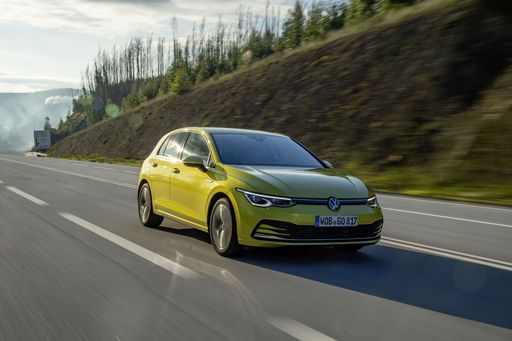
VW Golf
Costs and Consumption
View detailed analysis
Engine and Performance
View detailed analysis
Dimensions and Body
View detailed analysis
Hyundai Bayon
The Hyundai Bayon slips neatly between city runabout and small SUV, offering surprising practicality and a fresh, confident design that stands out in urban traffic. It's an easy buy for shoppers who want smart packaging, tidy handling and a dash of personality without fuss — a sensible little crossover that makes everyday driving a bit more enjoyable.
details




VW Golf
The VW Golf remains the everyman’s favourite — cleverly balanced, composed and just posh enough to feel grown-up without pretending to be something it’s not. It slips through town and eats up longer trips with a refined cabin, practical layout and a kindly, capable character that turns everyday driving into something a little bit special.
details
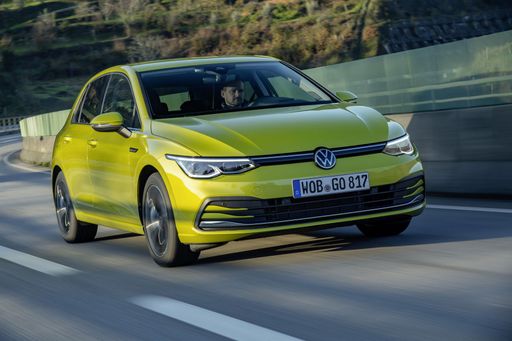
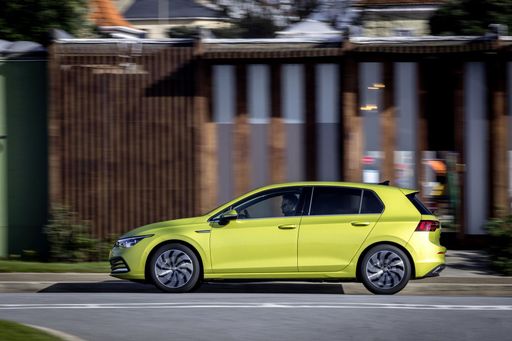
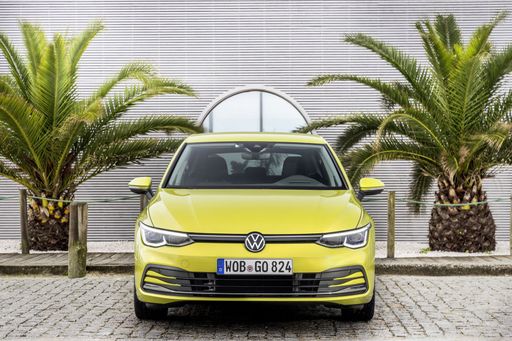
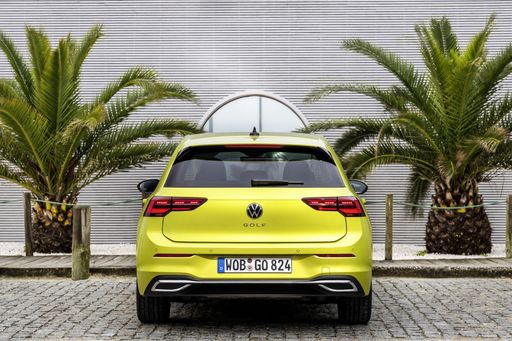
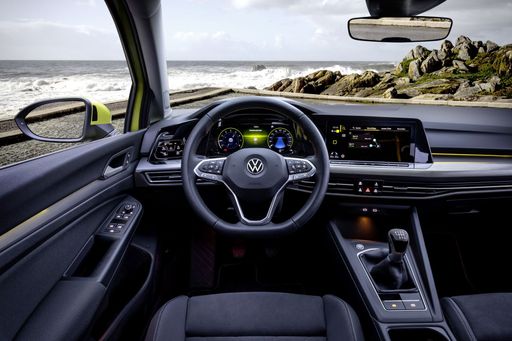
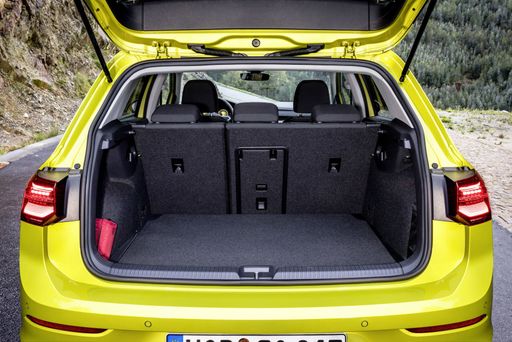
Costs and Consumption |
|
|---|---|
|
Price
20100 - 25800 £
|
Price
25200 - 47600 £
|
|
Consumption L/100km
5.80 L
|
Consumption L/100km
1.1 - 8.1 L
|
|
Consumption kWh/100km
-
|
Consumption kWh/100km
-
|
|
Electric Range
-
|
Electric Range
131 - 143 km
|
|
Battery Capacity
-
|
Battery Capacity
19.70 kWh
|
|
co2
130 - 132 g/km
|
co2
25 - 184 g/km
|
|
Fuel tank capacity
-
|
Fuel tank capacity
40 - 55 L
|
Dimensions and Body |
|
|---|---|
|
Body Type
SUV
|
Body Type
Hatchback
|
|
Seats
5
|
Seats
5
|
|
Doors
-
|
Doors
5
|
|
Curb weight
1175 - 1200 kg
|
Curb weight
1307 - 1662 kg
|
|
Trunk capacity
411 L
|
Trunk capacity
273 - 381 L
|
|
Length
-
|
Length
4282 - 4296 mm
|
|
Width
1775 mm
|
Width
1789 mm
|
|
Height
-
|
Height
1454 - 1483 mm
|
|
Max trunk capacity
-
|
Max trunk capacity
1129 - 1237 L
|
|
Payload
450 - 460 kg
|
Payload
438 - 508 kg
|
Engine and Performance |
|
|---|---|
|
Engine Type
Petrol
|
Engine Type
Petrol MHEV, Petrol, Diesel, Plugin Hybrid
|
|
Transmission
Manuel, Automatic
|
Transmission
Automatic, Manuel
|
|
Transmission Detail
Manual Gearbox, Dual-Clutch Automatic
|
Transmission Detail
Dual-Clutch Automatic, Manual Gearbox
|
|
Drive Type
Front-Wheel Drive
|
Drive Type
Front-Wheel Drive, All-Wheel Drive
|
|
Power HP
90 HP
|
Power HP
116 - 333 HP
|
|
Acceleration 0-100km/h
11.9 - 13.3 s
|
Acceleration 0-100km/h
4.6 - 10.2 s
|
|
Max Speed
-
|
Max Speed
202 - 270 km/h
|
|
Torque
172 Nm
|
Torque
220 - 420 Nm
|
|
Number of Cylinders
3
|
Number of Cylinders
4
|
|
Power kW
66 kW
|
Power kW
85 - 245 kW
|
|
Engine capacity
998 cm3
|
Engine capacity
1498 - 1984 cm3
|
General |
|
|---|---|
|
Model Year
2025
|
Model Year
2024 - 2025
|
|
CO2 Efficiency Class
D
|
CO2 Efficiency Class
D, F, G, C, B
|
|
Brand
Hyundai
|
Brand
VW
|
What drivetrain options does the Hyundai Bayon have?
The Hyundai Bayon is available as Front-Wheel Drive.




